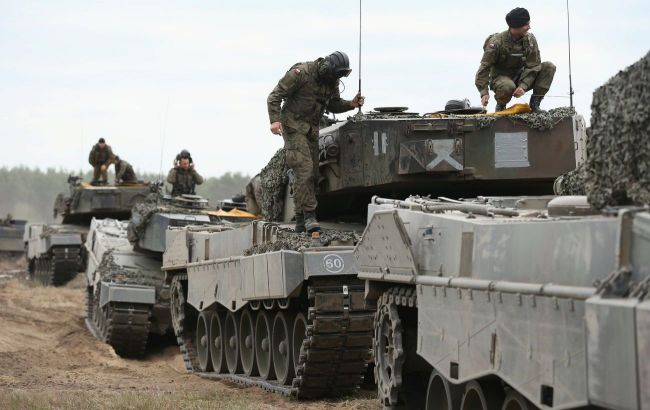Some EU states ramp up defense spending, others resist — Expert reveals reasons
 Photo: NATO member states step up preparations for a possible war with Russia (Getty Images)
Photo: NATO member states step up preparations for a possible war with Russia (Getty Images)
At the June 2025 NATO summit, EU countries agreed to raise their defense spending to 5% of GDP by 2035. However, not all states are ready to do so, despite having introduced the relevant budget changes for next year, said Rasto Kuzel, executive director of Memo 98 (Slovakia), an organization monitoring political processes in Europe, in a comment to RBC-Ukraine.
According to him, a country's attitude toward its own defense depends on how far it is from Russia. In addition, in some states, the influence of populists - whether right-wing or left-wing - remains decisive.
"Populists in countries such as Czechia, Slovakia, and Germany continue to enjoy support because they rely on a mix of war fatigue, rising living costs, and the perception that elites in Brussels or Kyiv care more about geopolitics than about the everyday problems of ordinary people," Kuzel said.
Political consequences for leaders
He noted that European countries are democratic, and their leaders are forced to take into account the political consequences of their decisions. This contrast, Kuzel added, is obvious in Germany.
"In the east, in the former GDR, the far-right Alternative for Germany holds strong positions, using a historically low level of trust in institutions and the West, while the western part of the country remains more pragmatic on defense and support for Ukraine and is firmly committed to Euro-Atlantic structures," he said.
According to the expert, in northern and Baltic countries, the Russian threat has never disappeared from collective memory. It remains part of their identity and political reality.
Distance changes the situation
For this reason, even local populists do not oppose strengthening defense, as this would be political suicide for them. But farther from Russia’s borders, the situation is different.
"In the entire Central European region, there has long been no strong consensus on the Russian threat or societal immunity to disinformation, which allows populists to advance simple slogans about national interests and peace," Kuzel emphasized.
The newly appointed head of Germany's Federal Intelligence Service (BND), Martin Jäger, recently stated that Russian leader Vladimir Putin is showing a willingness to test Europe's borders and is capable at any moment of provoking a hot confrontation.

